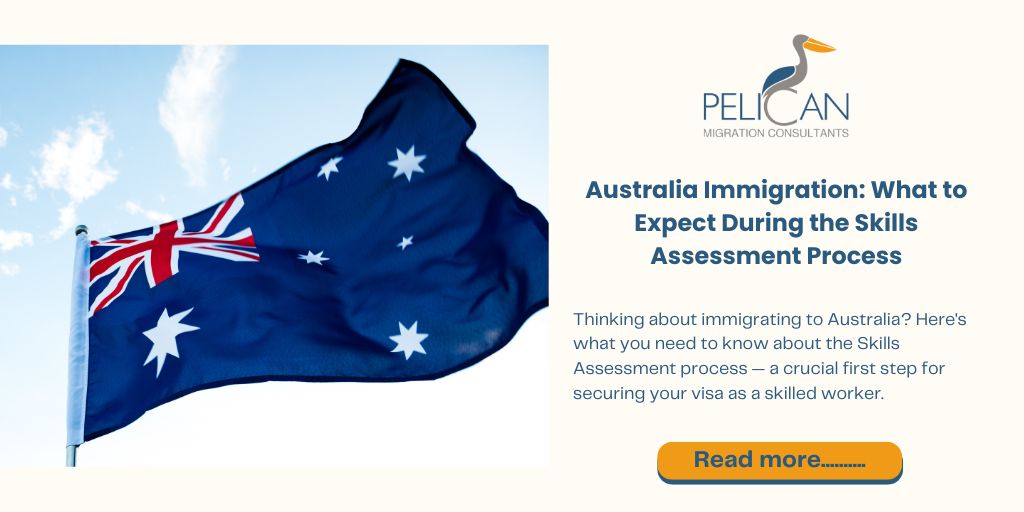
Canada's Express Entry system is the primary immigration pathway for skilled workers to become permanent residents of Canada. Introduced in 2015, it is designed to streamline and simplify the immigration process by assessing and selecting skilled workers based on specific criteria such as age, education, work experience, and language proficiency. The system of Express Entry Canada is points-based, ensuring fairness and transparency for all applicants.
This guide provides a detailed look at the steps and components involved in the Express Entry process, including eligibility requirements, the application process, and factors influencing your chances of success. We will cover all three key immigration programs managed through Express Entry: the Canadian Experience Class (CEC), Federal Skilled Worker Program (FSWP), and Federal Skilled Trades Program (FSTP).
Overview of Immigration Programs within Express Entry
Express Entry Canada encompasses three major immigration programs, each designed for a specific category of skilled workers. Here’s an overview:
- Canadian Experience Class (CEC)
This program targets skilled workers who already have Canadian work experience. Applicants must have gained this experience within three years before applying. The CEC is ideal for those who have completed temporary work permits and wish to transition to permanent residency. - Federal Skilled Worker Program (FSWP)
The FSWP is for skilled workers who have foreign or Canadian work experience. Applicants need to meet various criteria related to education, work experience, and language proficiency. This program is suitable for individuals outside of Canada or those with relevant skills in demand in the Canadian economy. - Federal Skilled Trades Program (FSTP)
The FSTP is geared toward skilled workers qualified in a specific trade. To be eligible, applicants must either have a valid job offer from a Canadian employer or a certificate of qualification in their trade from a Canadian province or territory. This program is ideal for trade professionals seeking to use their skills in Canada’s job market.
Additionally, candidates applying through any of the above programs may also be eligible for the Provincial Nominee Program (PNP), which allows provinces and territories to nominate candidates from the Express Entry pool. If nominated, applicants receive additional points, significantly increasing their chances of being invited to apply for permanent residency.
The Express Entry Process: Step-by-Step
Step 1: Checking Your Eligibility
To determine your eligibility, you must assess your qualifications against the requirements of one or more of the three Express Entry Canada programs. Two ways to check eligibility include:
- Answering a few questions to see if you meet the minimum requirements.
- Reviewing the detailed requirements for each program, such as the specific work experience, education, and language proficiency criteria.
Step 2: Calculating Your CRS Score
Once you confirm eligibility, the next step is to calculate your score using the Comprehensive Ranking System (CRS). The CRS assesses applicants on several factors, including:
- Age
- Education
- Work experience
- Language proficiency in English and/or French
- Adaptability factors (e.g., Canadian work experience, family in Canada)
Your CRS score will determine how competitive you are within the Express Entry Canada pool. The higher your score, the greater your chances of receiving an Invitation to Apply (ITA) for permanent residence.
Step 3: Preparing Your Documents
Before submitting your profile, you will need to gather key documents, such as:
- Language test results (e.g., IELTS for English, TEF for French).
- Educational credential assessments (ECA) for any foreign education.
- Work experience documentation, including reference letters.
- Provincial nomination (if applicable).
- Valid job offer (if applicable).
Some documents may take time to obtain, so it is important to start preparing them early. While you don’t need to upload all of them when submitting your profile, you will need them if you receive an ITA.
Step 4: Submitting Your Express Entry Profile
Once all the necessary documents are in place, you can submit your Express Entry profile through the online portal managed by Immigration, Refugees, and Citizenship Canada (IRCC). Your profile will be scored, and you will be placed into the Express Entry pool alongside other candidates.
Step 5: Receiving an Invitation to Apply (ITA)
IRCC conducts regular draws from the Express Entry Canada pool, inviting the highest-scoring candidates to apply for permanent residence. If your CRS score exceeds the cutoff in a given draw, you will receive an ITA. Once invited, you have 60 days to submit a complete application.
Step 6: Completing and Submitting Your Application for Permanent Residence
After receiving an ITA, you must complete and submit your Application for Permanent Residence (APR), which includes uploading all supporting documents such as:
- Police certificates.
- Proof of funds.
- Birth certificates for dependent children.
- Marriage or divorce certificates (if applicable).
Biometrics may also be required as part of the application process.
Step 7: Waiting for a Final Decision
The standard processing time for most Express Entry Canada applications is six months or less, provided that all documents are submitted correctly. Once approved, you and your family members (if applicable) will be granted permanent residency status in Canada.
Points Breakdown in the Comprehensive Ranking System (CRS)
The CRS is a critical part of the system for Express Entry Canada, determining how candidates are ranked in the pool. It assigns points based on the following factors:
Age:
You can score a maximum of 12 points for age, with those between 18 and 35 years old receiving the highest points. After age 35, the points gradually decrease, and by age 47, no points are awarded.
|
Age Group |
Maximum Points |
|
18-35 years |
12 |
|
36 |
11 |
| 37 |
10 |
|
38 |
9 |
| 39 |
8 |
|
40 |
7 |
| 41 |
6 |
|
42 |
5 |
| 43 |
4 |
|
44 |
3 |
| 45 |
2 |
|
46 |
1 |
| 47 & Above |
0 |
Education:
Education is a major factor in the CRS, with a doctoral degree or equivalent fetching the highest score of 25 points. A bachelor’s degree, or post-secondary credential, earns between 15 to 21 points.
| Education | Maximum Points |
| Doctoral degree (Ph.D.) or equivalent | 25 Points |
| Master’s degree | 23 Points |
| Two or more post-secondary diplomas | 22 Points |
| Bachelor’s degree | 21 Points |
| One-year post-secondary program | 15 Points |
| Secondary school diploma | 5 Points |
Work Experience:
Work experience, particularly in a skilled occupation, plays a significant role in the CRS. Applicants with more than six years of relevant experience can earn up to 15 points.
| Work Experience | Points |
| 6+ years | 15 Points |
| 4-5 years | 13 Points |
| 2-3 years | 11 Points |
| 1 year | 9 Points |
Language Proficiency:
Canada’s official languages are English and French, and high proficiency in either or both can significantly boost your CRS score. The points are based on the Canadian Language Benchmark (CLB) levels.
|
language Proficiency (CLB Level) |
Speaking | Listening | Reading | Writing |
| CLB 9 and above | 6 | 6 | 6 |
6 |
|
CLB 8 |
5 | 5 | 5 | 5 |
| CLB 7 | 4 | 4 | 4 |
4 |
|
Below CLB 7 |
- | - | - |
- |
Points for proficiency in a second official language (either French or English) are also available. A minimum score of CLB 5 in all language categories is required to earn points for the second language.
Adaptability:
Additional points can be earned for various adaptability factors, such as Canadian education or work experience, arranged employment, or having family members in Canada. These points can enhance your overall CRS score, improving your chances of receiving an ITA.
|
Adaptability Factor |
Maximum Points |
| Spouse’s language skills |
5 Points |
|
Past education in Canada |
5 Points |
| Spouse’s past education in Canada |
5 Points |
|
Previous Canadian work experience |
10 Points |
|
Spouse’s Canadian work experience |
5 Points |
| Arranged employment in Canada |
5 Points |
|
Close relatives living in Canada |
5 Points |
Key Documents for Express Entry Applications
To complete the Express Entry Canada process, several essential documents must be submitted, including:
- Passport or Travel Document
This document is needed to establish your identity and nationality. - Language Test Results
Applicants must submit official results from an approved language test, such as IELTS (for English) or TEF (for French). These test results must be less than two years old at the time of application. - Educational Credential Assessment (ECA)
If your education was completed outside of Canada, you must obtain an ECA from a designated organization to validate that your degree or diploma meets Canadian standards. - Proof of Work Experience
Work experience can be demonstrated through employer reference letters, pay stubs, or contracts. These documents should specify the job title, duties, and employment period. - Medical Examination
All applicants and their dependents must undergo a medical examination by an authorized panel physician to ensure they are in good health before being granted permanent residency. - Police Certificates
Police certificates are required from each country where the applicant has lived for six months or longer in the last ten years. - Proof of Funds
To prove financial stability, applicants must submit proof of funds demonstrating they have enough money to support themselves and their family upon arrival in Canada.
Your Gateway to Canada: Navigating Express Entry with Pelican Migration Consultants
If you’re dreaming of making Canada your new home through the Express Entry system, Pelican Migration Consultants is here to guide you at every step. With a team of dedicated professionals and a commitment to providing top-notch service, we are driven by the core value of customer satisfaction. Our approach is transparent, personalized, and designed to give you the best chance at success.
At Pelican Migration Consultants, we believe that making informed decisions is the key to a successful immigration journey. Unlike other agencies that may push you toward programs that don’t suit your profile, we take a personalized approach. We provide clear, comprehensive information about your immigration options, allowing you to understand the programs available and choose the one that best fits your qualifications and goals. We don’t just focus on getting you into any program; we ensure it’s the right program for you. This way, you’ll have confidence in the decisions you’re making as you navigate the Canadian immigration process.
One of the standout aspects of our service is that we are licensed and accredited by the College of Immigration and Citizenship Consultants (CICC). This regulatory body ensures that immigration consultants worldwide uphold the highest standards when assisting clients with their Canadian immigration processes. By choosing Pelican Migration Consultants, you’re selecting a company that is not only experienced but also certified to give you reliable, accurate advice on your Express Entry journey. You can even verify our credentials directly through the CICC, reinforcing the trust we build with our clients from the very beginning.
Pelican Migration Consultants is more than just an immigration consultancy. We offer a full suite of services designed to help you succeed in every step of your journey to Canada. For many applicants, taking the IELTS exam is a crucial part of the Express Entry process, and we understand that this can be a challenging hurdle. That’s why we provide specialized IELTS preparation assistance. Our programs are tailored to give you the confidence and skills necessary to achieve a high score, boosting your chances of being selected through the Express Entry system.
Additionally, finding a job in Canada can significantly improve your chances of success in the immigration process. We provide detailed guidance on how to navigate the Canadian job market. From helping you format your resume to meet Canadian standards to coaching you on writing compelling cover letters, we make sure you're well-prepared to secure job offers that can strengthen your Express Entry profile.
At Pelican Migration Consultants, we take pride in our ethical practices while making you eligible for Express Entry Canada. We keep our fees transparent, with no hidden costs or surprise charges. Throughout your journey with us, we make sure you’re aware of every step we take, providing you with peace of mind and eliminating any uncertainties.
When you partner with Pelican Migration Consultants, you’re not just hiring a consultancy – you’re gaining a team of experts committed to making your Canadian immigration dream a reality. Let us help you navigate the Express Entry system with ease and confidence. Contact us today and take the first step toward your future in Canada!
End Note
Navigating the Express Entry Canada system can be a complex but rewarding journey for skilled workers seeking permanent residency. By understanding the eligibility criteria, application process, and key components like the Comprehensive Ranking System, you can significantly enhance your chances of success. Partnering with experienced consultants like Pelican Migration Consultants can provide personalized support and guidance, ensuring you are well-prepared for each step. Take control of your immigration journey and explore the opportunities Canada has to offer!
Frequently Asked Questions
- What is the Express Entry system?
The Express Entry system is Canada’s primary immigration pathway for skilled workers, launched in 2015 to streamline the application process for permanent residency based on factors like age, education, work experience, and language proficiency. - What are the main programs under Express Entry?
The three main programs are the Canadian Experience Class (CEC) for those with Canadian work experience, the Federal Skilled Worker Program (FSWP) for skilled workers with foreign or Canadian experience, and the Federal Skilled Trades Program (FSTP) for trade professionals. - How do I check my eligibility for Express Entry?
You can check your eligibility by answering questions related to the minimum requirements or by reviewing detailed criteria for each program, focusing on your work experience, education, and language skills. - What is the Comprehensive Ranking System (CRS)?
The CRS is a points-based system that assesses candidates based on factors such as age, education, work experience, language proficiency, and adaptability, ranking them within the Express Entry pool. - How can I improve my CRS score?
You can improve your CRS score by enhancing your language test results, obtaining a job offer from a Canadian employer, securing a provincial nomination, or gaining additional work experience or education. - What documents do I need for my Express Entry application?
Essential documents include your passport, language test results, Educational Credential Assessment (ECA), proof of work experience, medical examination results, police certificates, and proof of funds. - What happens after I receive an Invitation to Apply (ITA)?
Once you receive an ITA, you have 60 days to submit a complete Application for Permanent Residence (APR) along with all supporting documents. - How long does the Express Entry application process take?
The standard processing time for most applications is six months or less, assuming all documents are submitted correctly and promptly.


